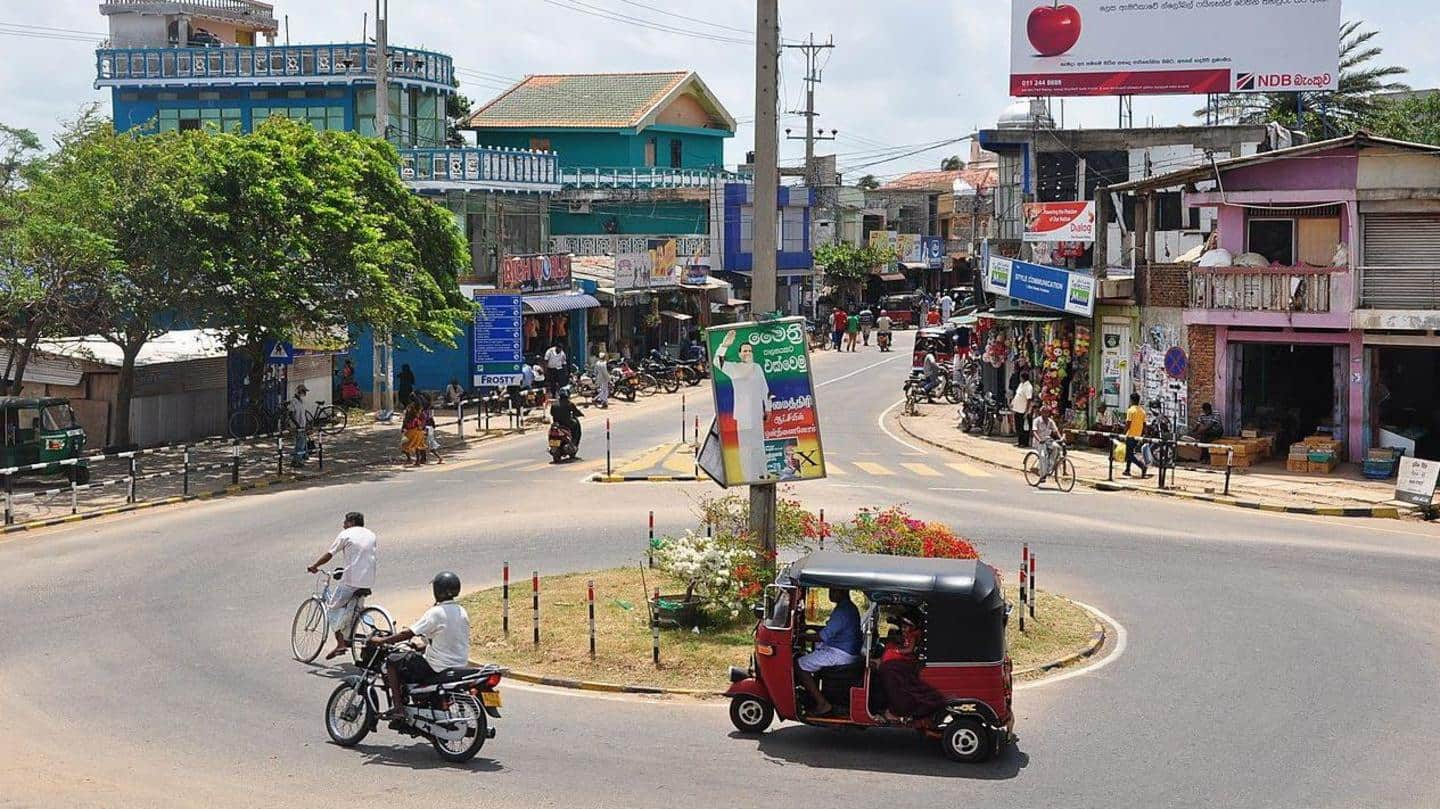
Amid protests, nation-wide curfew imposed in Sri Lanka till Monday
What's the story
The Sri Lankan government has imposed a curfew across the country from Saturday at 6:00 pm to Monday at 6:00 am in response to protests over the country's worst economic crisis in decades. This comes after Sri Lankan President Gotabaya Rajapaksa declared a countrywide state of emergency on Friday. Anger is growing over the present leadership of the island country as economic issues intensify.
Context
Why does this story matter?
The country is experiencing violent protests over severe food shortages, sharp price increases, and crippling power outages in its most distressing economic crisis since gaining independence from Britain in 1948. The move is aimed at stopping new protests. According to official data, inflation in Sri Lanka reached 18.7% in March, the sixth consecutive high. Food prices have increased by an all-time high of 30.1%.
Announcement
Information department issues statement
"Under the powers given to the president, curfew has been imposed countrywide from 6 p.m. (1230 GMT) on Saturday to 6 a.m. (0030 GMT) on Monday," the government's information department said in a statement. Earlier in the day, hundreds of lawyers urged Rajapaksa to revoke a state of emergency to ensure that freedom of speech and peaceful assembly are respected.
Details
Reason behind the economic crisis
The crisis is reportedly a result of the mismanagement of government finances and ill-timed tax cuts. The country was in the midst of a deep financial downturn when the COVID-19 pandemic struck, reducing foreign workers' remittances and crippling the lucrative tourism sector—a key source of the country's revenue. Sri Lanka's foreign currency reserves have now hit rock bottom—plummeting 70% in the last two years.
Protests
Violent protests happened on Thursday
Hundreds of people protested outside the President's residence on Thursday night, demanding his resignation. Protesters chanted "lunatic go home" while police fired tear gas and used water cannons. Two military buses, a police jeep, two patrol motorcycles, and a three-wheeler were set on fire by the demonstrators while hurling bricks at police officers. As per the police, 53 protesters were arrested and two injured.
Information
'This is a major intelligence failure': Health Minister
"We had information of a demonstration, but nothing suggesting that it could turn violent. This is a major intelligence failure," Keheliya Rambukwella, Minister of Health, stated. Another minister referred to Thursday's protesters as terrorists. According to Rajapaksa's office, the protesters wanted to spark an "Arab Spring," a reference to anti-government protests that swept West Asia in 2011 in response to corruption and economic stagnation.
Twitter Post
India sends oil aid to Sri Lanka
More fuel supplies delivered by #India to #SriLanka! A consignment of 40,000 MT of diesel under #Indian assistance through Line of Credit of $500 mn was handed over by High Commissioner to Hon'ble Energy Minister Gamini Lokuge in #Colombo today. (1/2) pic.twitter.com/j8S2IsOw29
— India in Sri Lanka (@IndiainSL) April 2, 2022